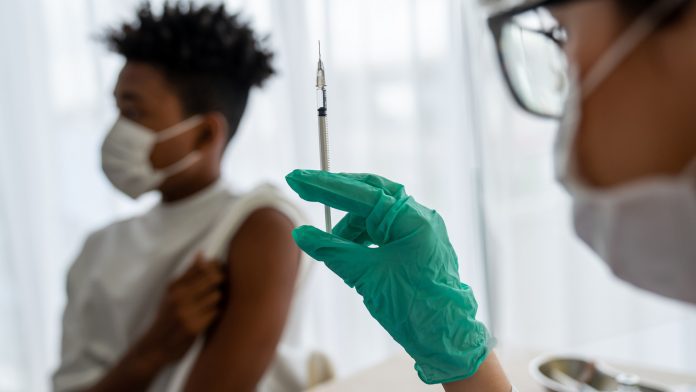
Research emerging from the UK suggests that one in 10 people from ethnic minority groups who were reluctant to receive a COVID-19 vaccine experienced racial discrimination in a medical setting.
In a new University College London (UCL) study that analysed the association between ethnic and racial discrimination and COVID-19 vaccine hesitancy, researchers discovered that one in 10 people from ethnic minority groups suffered racial discrimination as a result of not wanting to get their SARS-CoV-2 immunisations.
The findings illustrated that those who refused to get a COVID-19 vaccine suffered twice as many incidents of racial discrimination as those who accepted the vaccine. The investigation underlines a direct relationship between racial discrimination and low confidence in the UK health system, which exacerbates vaccine hesitancy. The findings may help to enhance the inclusivity of future healthcare settings.
The study results are published in the Journal of the Royal Society of Medicine.
Racial discrimination in UK healthcare
The UCL study comprised 633 participants who were all adults belonging to ethnic minority groups that were offered a vaccine for COVID-19 between December 2020 and June 2021. The results demonstrated that 6.69% of the participants who reused the vaccine reported poorer service or treatment compared to other people in their medical facility due to their race or ethnicity.
Dr Elise Paul, the lead author of the study and a Senior Research Fellow in Epidemiology and Statistics at UCL, commented: “Our findings confirm evidence from before the current pandemic, which found associations between experiences of racial discrimination and distrust of the health care system and physicians among ethnic minority adults.”
Building public trust in healthcare systems
The investigators explained that their findings highlight the essential role of the NHS in increasing trust among ethnic minority groups to improve the uptake of the COVID-19 vaccine in these populations.
They stated that public health campaigns aimed at increasing the number of people from these groups receiving the vaccine should not only build trust in the vaccine but also include methods to mitigate ethnic and racial discrimination in healthcare. Moreover, these strategies should also provide support for those who sadly experience it.
Dr Paul added: “Efforts to raise confidence in COVID-19 vaccines have been insufficient to prevent inequalities in vaccine uptake. Therefore, more work is urgently needed to mitigate the unequal and severe effects of the pandemic on ethnic minority populations.”
Dr Mohammad Razai, a Research Fellow at the Population Health Institute, St George’s University of London, concluded: “Our study shows how racial discrimination erodes trust in the system and prevents ethnic minorities from engaging with the NHS. Failure to tackle racial discrimination would lead to a widening of systemic inequalities putting more ethnic minority lives at risk.”










